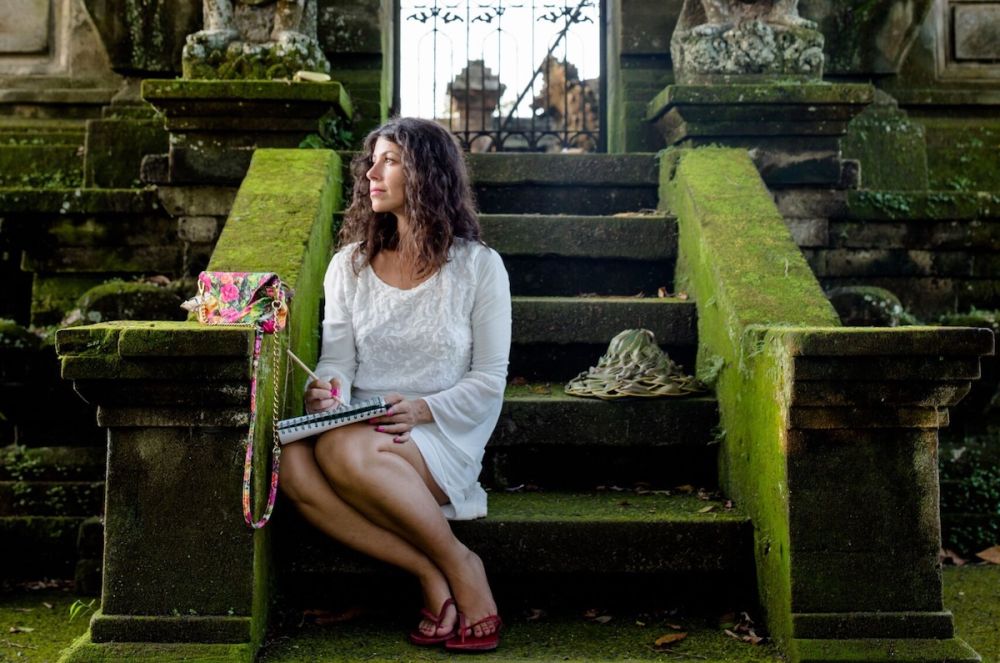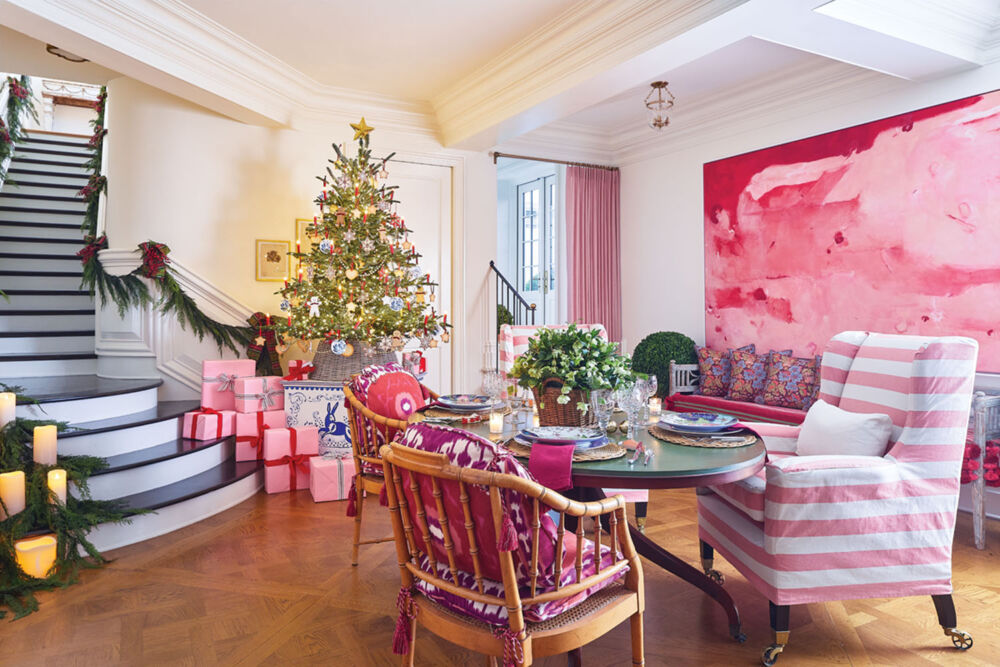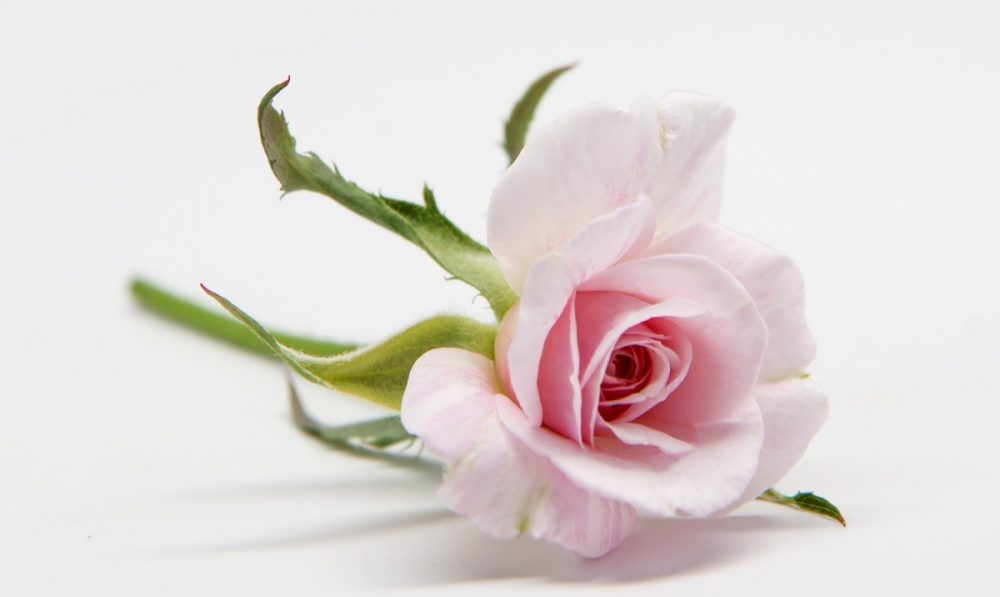
Cécile Brünner rose boutonniere. Photo by Bonnie Taylor Barry, Shutterstock
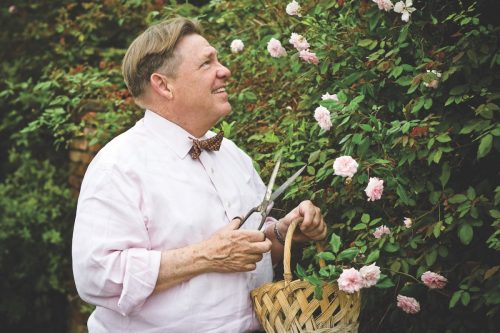
Patrick Dunne cutting Cécile Brünner roses in his Louisiana garden. Photo by Michael Caswell
He had strange notions, that monarch of our household. Two duties, my father insisted, best formed my character: polishing his patent dress shoes with Vaseline just before he swept out to some shindig with my mother, and choosing a rose for his lapel each morning. The first, he reminded me, was a lesson in humility; the second, vital training in discernment. His everyday shoes were always perfect and done by other hands. It wasn’t until much later I guessed that, less than a moral exercise, that spit-shine might have been mere expediency. Those glossy pumps kicked off after a late night out probably had lain forgotten in a closet until the last minute, and that’s where my humility came in. However, in the other task he came nearer to a mark.
A tiny rosebud can sometimes fool a hurried child in early morning. It required concentration to pick just the right one for my father’s jacket. I felt a swelling triumph as he peered at it critically, then, beaming, threw his arms around me as if it were the first rose he had ever seen and one never to be equaled. It was worth the thorns, the tottering little stepladder, and, in summertime, the errant bee. Pulling it through his button hole, I would thrill to hear him chant out a line from the ancient litany prayer, which he knew by heart: “Rosa Mystica (Mystical Rose) ora pro nobis.” Our rose seemed somehow to have angelic links.
So different were those other, darker times when, having been presented a bloom too full or battered or worst of all, faded, he would lower his eyes and sigh, “No rose for me today!” Few failures have ever felt as bitter. Those were days I had been hasty, disinterested, or bored. I learned then and there never to be careless with a flower, to look at it just like I later looked at faces or furniture—deeply, marveling, full of uncertainty and hope. Learning to look at flowers helped me look out into the world.
Imagine the luxury, yes luxury, to start the day concerned with a perfect flower and a Latin prayer. All that now seems so remote, so unattainable, so wonder-filled. How could any bush have been as tall as I remember that sweetheart rose which prospered outside the dining room windows? Like many of the simple things Southerners guard jealously—whether a rose or a recipe—it was held to be a family treasure. For my grandmother it was inarguably the most subtly colored, the most fragrant, the longest lasting, and the most prolific, truly mystical rose possible—and so to me.
Not until years later in an old garden in New Orleans did I discover small soft-pink blooms growing on spinney branches that seemed frightfully close to what I had pressed among my memories from home, and it came as a shock that ‘Cécile Brünners’ were by no means as rare as black orchids.
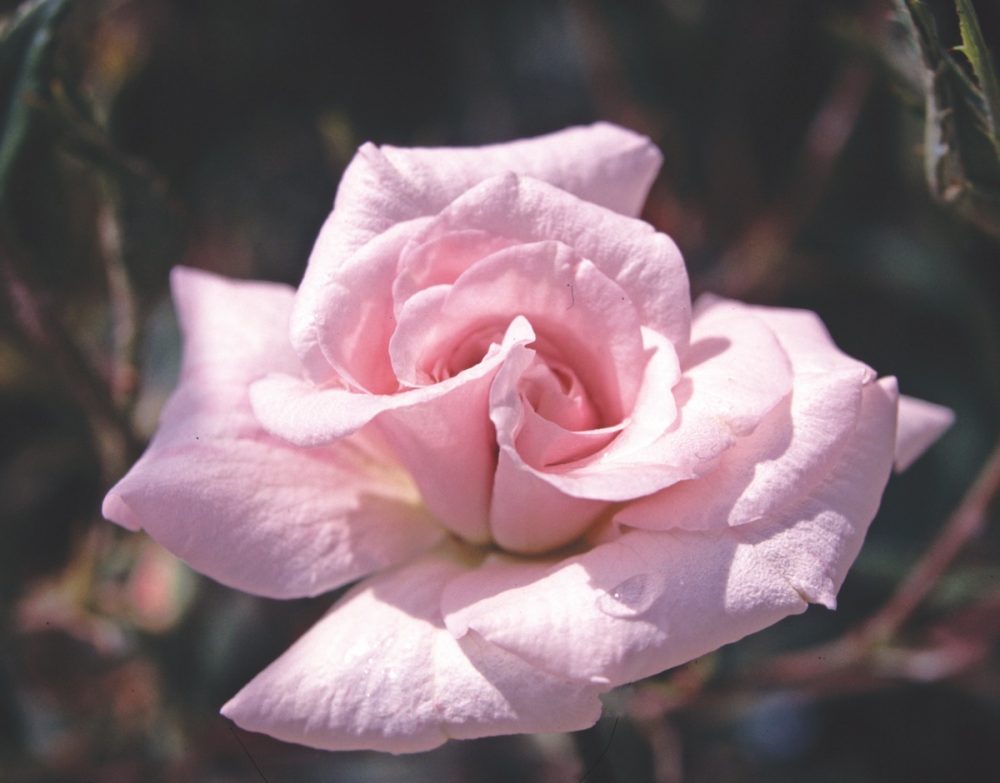
A blossom of ‘Cécile Brünner’ rose. Photo by Marily Young Williams
When I had a garden of my own, I begged my sister for a cutting. I got one wrapped in damp bandages by airmail. It was a healthy enough looking twig that promptly perished on my swampy patio. Not long after, my nephew, in an adolescent prank, fell from a second-floor window and was only saved from catastrophe by the old bush. The sweetheart rose which had been ailing was now crushed into extinction. Last winter I found a ‘Cécile Brünner’ in a neglected nursery not far from my house in the Louisiana countryside, and I have planted it outside our own dining room window. Just now, tucked amidst the hardy new growth, I have spotted buds. The first one, if it is just right, will go into my lapel, for old sake’s sake.
By Patrick Dunne
Patrick Dunne is the proprietor of Lucullus Culinary Antiques, Art and Objects at 610 Chartes Street, New Orleans.
All About Roses
- Our Favorite Fragrant Roses
- How To Condition Roses
- How to Make Cut Roses Last
- Promise of Rose Gardens
- Red and Pink Rose Arrangement



